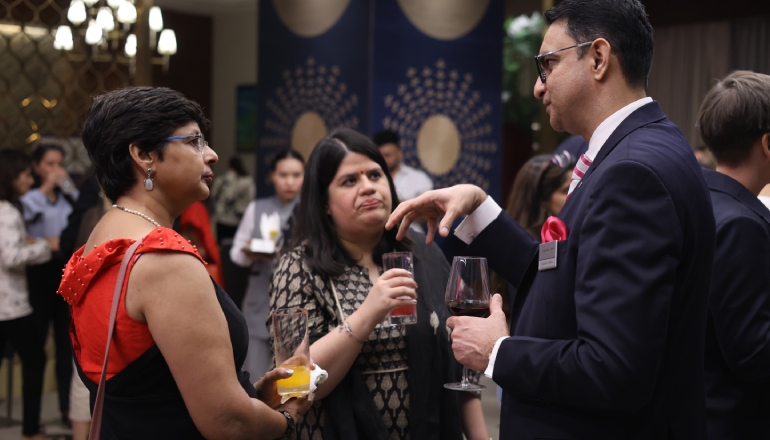Every International Women’s Day, I am invited to some unique programs or initiatives. This year, I received an invite to a forum hosted by NuernbergMesse India. The company and NM Health hosted an event to celebrate successful women in Mumbai. The thought of putting together such a program deserves well-deserved appreciation.
A room full of successful women from various segments filled the atmosphere with laughter, enthusiasm, hope, and a chance to connect with like-minded people, to say the least.
Bernhard Steinruecke, Member of the Board, NuernbergMesse India, mentioned in the opening remark that even in a country like Germany, of the 40 top companies, only one has a woman CEO. He added that though women are represented equally at various levels, the gap widens for the top spot.
As a person working in the ESG/Sustainability space, with a special focus on DEI, I want to mention a couple of facts here. India’s image is more encouraging. According to Grant Thornton’s International Business Report for 2023, the percentage of women in senior management roles in mid-market Indian businesses is 36%, which is higher than the global average of 32%.
Rahil Shah, Managing Director of NM Health, spoke about the unique all-women diagnostic centre in South Mumbai. This was established to make the female patients feel comfortable as the number of women visiting centres has increased.
Anju Kish, Founder & CEO, UnTaboo – A Safety & Sex Education company, spoke about the need to make people aware of safety. She also touched upon the changing approach to sex education, especially at the grassroots level.
Let me reiterate that in sex education, Mumbai was way ahead. In 2002, the efforts of Brihanmumbai Municipal Corporation (BMC), the Mumbai District Aids Control Society (MDACS) & Dr Prakash Sarang culminated in Antarang – Sex Health Information Art Gallery (Antarang Museum) to educate the young and old about the human body, sexuality, and AIDS. It was the first sex museum in Southeast Asia. Unfortunately, it shut down in 2013.
Evidently, the women at the event had climbed to the top position, toiling through tougher terrain. Each woman had an inspiring story. I came back with renewed vigour to empower more women around me.

